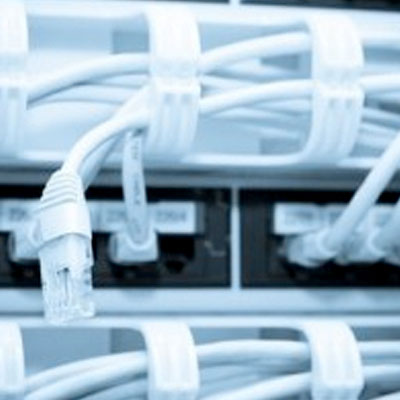Ethiopia’s Telecom Fraud Offences law, passed by the House of Peoples’ Representatives in August, is the latest of a number of attempts by governments around the globe to monitor and censor communications via the Internet and cell phones. The stated purpose of the law is to ‘protect the state monopoly over telecommunications and safeguard national security’. However, many fear that it could lead to the banning of Skype and all Voice Over IP (VoIP) programmes such as Google Voice or Face Time. Though debate continues regarding the actual effect of the bill due to its ambiguous language, the fact that violations would carry prison sentences of up to 8 years concerns groups interested in promoting freedom of Internet communications.
Motivation
The legislation appears to be driven by a mixture of commercial and political factors. Use of Skype in internet cafes in Addis Ababa allows users to escape exorbitant fees charged by Ethiopia Telecom:
- Part of the motivation is to drive cheaper competitors without government connections out of the market.
- More importantly, with cyber-revolutions rattling regimes across North Africa and the Middle East, the political and military elite have grown anxious — all the more with the recent death of Prime Minister Meles Zenawi
Amid uncertain times, government security agencies find it difficult to eavesdrop on Skype or other forms of social media.
In seeking to stifle political dissent they find themselves technologically challenged by a younger tech-savvy generation able to out manoeuvre older entrenched political, military and social cliques. Thus when it comes to fomenting, informing and mobilising political dissent, cell-phones, digital notepads, chat sites and Skype have become the weapons of choice.
Mixed feelings
Such tools also help local networks of Christian and Muslim groups to advance their cause and to provide information and security. As one Ethiopian church leader explained: “we have better connections and information than even the police or the military.”
Recently, when churches were under attack in a predominantly Muslim sector, Church leaders used their networks to document the violence and urge the government, which up to that time had no intelligence that the attacks had even taken place, to intervene.
Nonetheless, some Christian leaders in Ethiopia are sympathetic to the proposed law. Their concern is that Muslim groups’ use of communication devices and the world-wide web is more extensive and allows such groups to coordinate opposition and violence against Christians and churches.
Wider governmental unease
Were attempts to police the internet limited to Ethiopia, this might be of passing interest, but even in relatively open societies and technological hubs such as South Korea, increasingly governments are monitoring and censoring political dissent on the web and social media. Critics of the government there have found their Twitter accounts blocked or in one case been charged with criminal defamation for calling officials “pirates” for approving a controversial naval base.
Russia, backed by China and India, has submitted proposals to the International Telecommunications Union (ITU) to empower the UN to monitor and regulate the Internet.
Such penalties bring attention to the unease of governments and powerful elites over the bewildering shift of social power and influence to individuals and dissident groups linked through the internet and various forms of social media.
In a move to capitalise on this growing unease, Russia, backed by China and India, has submitted proposals to the International Telecommunications Union (ITU) to empower the UN to monitor and regulate the Internet.
Currently oversight remains under the control of the US-based Internet Corporation for Assigned Names and Numbers (ICANN) which co-ordinates codes and numbering systems while leaving it to internet service providers to assign individual addresses. This proposal to shift control from a private corporation to intergovernmental control is strongly opposed by the USA and Western European nations. The issue will come to a head at the Dubai ITU conference in December where representatives from 178 nations will review International Telecommunications Regulations (ITR). Currently it appears that the delegates are evenly split over the issue. As a consultative assembly, the ITU requires consensus and thus would block any attempt to bring the proposal to a vote.
Regardless of the outcome in Dubai, this is only the initial skirmish it what portends to be a drawn out battle with political, social, religious and spiritual implications. Socially, the flood of information, images and video fl owing through the world-wide web is a catalyst of change that opens up markets and financial opportunities even as it undercuts and overwhelms traditional mores and hierarchies.
Community and division
The internet and social media create community – and divide it along the lines of access to the technology and how to use it:
- It divides young and old as well as the technologically gifted versus the technologically challenged.
- It forms communities that transcend national borders. This allows groups to gather very diverse individuals who simply share common interests and transcend national identity, or it can gather nationals and expats well beyond their own national borders.
- In the uprisings in Tunisia, Egypt, Libya, and Syria, these networks have been able to move information, videos and reporting in and out of the country beyond government control.
The internet and global technology are in large measure dominated by North American, Western European and rising Asian nations. Thus, developing countries are forced to weigh the benefits of lucrative markets available through the world-wide web against what they perceive as the cultural, political and economic hegemony of Western nations and mores. Further, what many in the West hail as democratisation through the mobilization of political opposition via the web is viewed by many leaders in the global south as dangerous destabilisation, especially as the internet and telecommunications have proven themselves effective tools to disperse political power and draw influence away from entrenched regimes in the Middle East.
For religion too, social media and the internet represent a two-edged sword;
- The internet and social media provide channels to communicate, convert, disciple and mobilize the faithful especially in regions and with people cut off due to political or religious restrictions on missionaries and missionary activity.
- At the same time, cell-phones and the internet provide a virtual religious marketplace where ideologies, religions and advocates of no religion are readily available to members of any religion’s own flock.
Thus, it is not surprising that religious leaders often side with political leaders who seek to block sites and the flow of information that they view as harmful to their people.
Mission implications
For Christian mission, the worldwide web has proven to be a powerful if peculiar crucible for evangelism.
For Christian mission, the worldwide web has proven to be a powerful if peculiar crucible for evangelism:
- Communication of the Gospel instantly to personal computers around the globe is viewed as a gold mine by those who tend to see mission as a matter of information, decision and demographics.
- Millions of dollars are being invested in the technology to secure decisions for Christ in lands not accessible to traditional mission work.
- These conversions are then mapped instantly in the relative security of hubs located in Western nations and communicated to the faithful as part of a wave of conversions.
Nonetheless, the vehicle of the world-wide web for evangelicals is challenged when it comes to transformation of the whole person or discipleship that includes the social witness of the reign of God. In terms of Christian fellowship, it is a strange communion that gathers a congregation of anonymous individuals gathered around their personal computers. Though the world-wide web and modern communication technology are at the leading edge of societal transformation, there seems to be little recognition or embrace of these aspects of the web by evangelicals.
Christian divisions
Moreover, when the focus turns away from global mission to issues closer to home, evangelicals find that many of the forces they contend with are those which seek to protect the freedom and autonomy of the world-wide web. Like many governments, evangelicals are often deeply concerned about the lack of censorship on the internet and the destabilising effect this has upon society and in particular the youth. Christianity, at least from the 4th Century onwards, has struggled over whether it is a conservative/preservative force in society or a force for revolutionary transformation. Since the evangelistic promise of the web only comes with its destructive potential, Christians are torn as to whether government supervision of the internet is positive or negative.
Indeed, because divisions run along cultural and national lines, it should not be surprising to find Christians in many countries of the global south supporting censorship of the web and social media, while those in Western nations strongly defend the access to missions that the freedom of the web provides. Whether one views the internet as a tool that empowers mission or sows the seeds of societal and familial dissolution has much to do with the cultural context in which one is raised:
- In cultures where traditional hierarchies are critical to social and familial harmony, the solvent of the internet and social media are seen as unwelcome by Christians and non-Christians alike.
- When technology is at the forefront of missions and evangelism in traditionally closed countries from a distance, it is often local Christian communities that have to bear the brunt of any violent reaction to foreign proselytism.
Outlook
In Ethiopia, some Christian mission organisations have joined international corporations and foreign embassies to protest against the law. Given their own reliance on the web and resistance to government monitoring and instruction, they have warned that if the law were to come into effect they would seek to set up their operations elsewhere. Ethiopia has been trying to establish itself as an international hub for Africa and the Middle East both in terms of business and NGO development organisations. Therefore such pressure has caught the attention of the government and may result in compromise.
Possible responses
In terms of evangelism and mission, perhaps Christian leaders need to broaden their appreciation of the web to effect social and political change:
- If the gospel is more than simply decisions of individuals to indicate a belief in Christ, then a serious and informed engagement in holistic transformation through use of the internet and global communications is called for.
- Christians need to note how use of the web brings about individual, communal, social and political transformation.
- There needs to be greater understanding of the relationship of recent social, economic and political upheavals — whether in the Arab Spring or the Occupy Movement in Western nations — and modern technology.
- Finally, there needs to be reflection on the use of the internet and social media to form and mobilise groups of people to be the church that can exist both within and beyond national boundaries — and thus to inform and enhance both personal and social transformation – so that the peace, justice and harmony of the reign of God might be received and established along the virtual Appian Way.
References
http://www.bbc.co.uk/news/world-middle-east-19634056
http://www.mobiledia.com/news/154994.html
http://www.mobiledia.com/news/154544.html
http://www.bbc.co.uk/news/technology-19106420
http://venturebeat.com/2012/06/14/ethiopia-skype-illegal/
http://www.bbc.co.uk/news/technology-18461292
http://www.guardian.co.uk/technology/2012/sep/08/anonymousbehind-masks-cyber-insurgents

